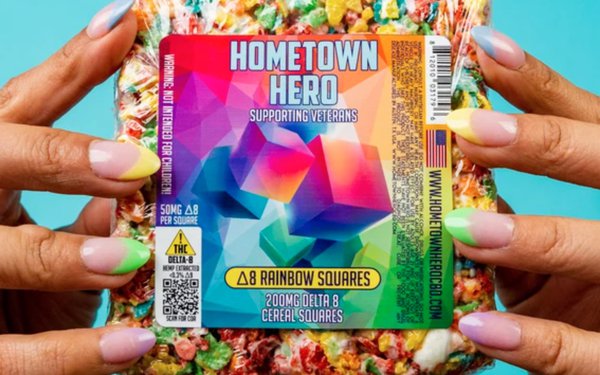
If you thought things in the marijuana scene couldn’t get
any crazier, consider Delta-8 THC.
A sister cannabinoid to Delta-9 THC—the psychoactive element of marijuana—Delta-8 THC products have exploded over the past year as more people
learn of its existence and how easy it is to buy.
What’s the difference between Delta-8 THC and Delta-9 THC?
In 2018, Congress passed the Agricultural Improvement Act, legalizing
the growing and distribution of hemp in most states. But to be federally legal, hemp cannot contain more than 0.3% of Delta-9 THC.
Enter Delta-8 THC, which can be synthesized from hemp-derived
CBD while providing a much stronger mental and physical effect than CBD can.
Depending on what you read, scientists have known about Delta-8 THC for decades. But no one seems to have shared
this knowledge with Congress prior to 2018.
advertisement
advertisement
So as the federal government and individual states continue to dither over marijuana decriminalization/legalization, consumers in almost all 50
states can purchase various forms of Delta-8 THC online from companies like Texas-based Hometown Hero.
But is it legal?
The Hemp Industries
Association thinks so.
In one of the briefest explanations out there, HIA notes that Delta-8 THC “is a derivative of a derivative of hemp” and thus allowed under the 2018 federal
legislation.
The U.S. Hemp Roundtable takes a harder stance. It opposes the marketing of products for their intoxicating effect “under the guise of hemp.”
“While we
are not calling for a strict Delta-8 ban, we believe that intoxicating products should be regulated akin to adult-use cannabis, sold in dispensary-like settings away from minors,” the Roundtable
said in April.
States including Vermont have notified registrants of legal hemp initiatives that it’s illegal to manufacture Delta-8 THC because it is considered a
“synthetic” cannabinoid.
Intentionally or not, this stance evokes the grisly history of so-called synthetic marijuana—plant matter sprayed with all manner of who-knows-what
chemicals—that has long been sold by bodegas, gas stations and online suppliers. In cities like New York, users of such substances often end up in emergency rooms.
Then there is the U.S.
Drug Enforcement Administration, which last year declared that all “synthetic cannabinoids” are Schedule I narcotics and therefore illegal.
Griffen Thorne, an attorney with the
Harris Bricken law firm, disagrees.
“Never mind that Delta-8 is most commonly derived from a hemp plant and that the 2018 Farm Bill legalized hemp and its derivatives because, well, the
DEA apparently thinks it’s as dangerous as heroin,” Thorne wrote in May on the Canna Law Blog.
On the consumer side, research provider Brightfield Group has dubbed Delta-8 THC
“the hottest new cannabinoid of 2021.”
According to Brightfield, 23% of Americans were aware of Delta-8 THC in the first quarter of 2021 compared to 19% a year ago. Half of those
aware had purchased it—with 20% reporting multiple reasons for the purchase.
“These early adopters of Delta-8 are trying it before most people, so their opinion on it could make or
break if the trend continues,” Brightfield wrote in a recent report.
Online comments about Delta-8 THC typically cite such benefits as pain relief, stress reduction and relaxation.
“Driving this trend are younger, city-dwelling cannabis users,” Brightfield noted, citing an average age of 34 and a 53%/47% female-to-male user ratio.
One attractive feature of
Delta-8 THC is “a smoother, milder high with less anxiety and paranoia that can happen with Delta-9 THC.”